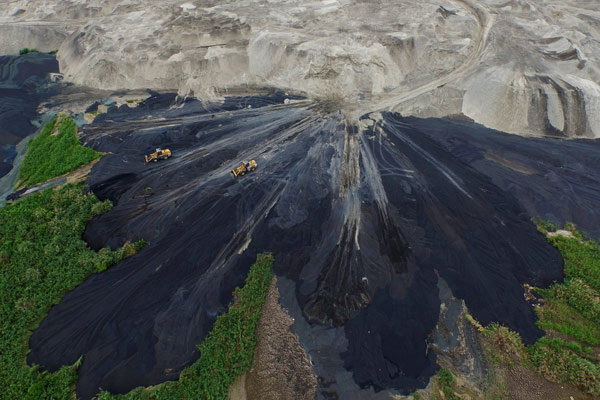China vows to root out soil pollution
China Daily, March 22, 2016 Adjust font size:
China has widened the scope of its anti-pollution efforts to include soil pollution for the first time.
A specific plan of action for the prevention and control of soil pollution will come into force during the period of the 13th Five-Year Plan (2016-20), and the nation's first specific national law on the control and prevention of soil pollution is being drafted by the Ministry of Environmental Protection.
"The draft will be submitted to the Standing Committee of the National People's Congress for discussion in 2017, and placed on the legislative agenda," said Yuan Si, deputy director of the NPC's environmental protection and resources conservation committee, speaking at a media briefing about the legislation on March 10.
Although China already has legislation covering air and water pollution, there is no law to prevent soil pollution, let alone any comprehensive and practical legal specifications, he said.
The first national survey of soil quality, jointly conducted by the ministries of environmental protection and land and resources in April 2014, revealed the gravity of the situation.
Contaminants were discovered in more than 16 percent of soil samples collected across 6.3 million square kilometers of China's 9.6 million sqm, and farmland was found to have been hit particularly badly. The situation was far worse in the southern regions than in the north, and the levels contamination in major industrial zones, such as the Yangtze River Delta, the Pearl River Delta and the Northeast of the country, were higher than the national average.
Soil pollution can affect food safety, people's standards of living and the country's sustainable development. That means legislative support, for regulations similar to the regulations already in place to control and reduce air and water pollution, is urgently needed, Yuan said.
Chen Jining, minister of environmental protection, said the legislative process will be backed up by the Action Plan on Soil Pollution Prevention and Control, a national campaign targeting soil pollution, which is expected to be launched this year.
Speaking at a March 11 media briefing to introduce new measures to control air, water and soil pollution, Chen said the program took longer than expected to prepare, partly because of poor basic information about soil pollution.
"But we have introduced pilot programs to control soil pollution and restore quality in 10 provinces, and improved the warning systems in regions badly affected by heavy-metal pollution," he said.
New binding targets
China's war on pollution began in earnest in 2013, when an action plan was published to tackle air pollution, followed up last year by measures targeting contaminated water.
With the upcoming action plan on soil pollution, the country is taking steps to further raise the general quality of the environment by 2020.
Having promoted agricultural technologies in her village for more than 20 years, Qiu Xinghong, a national legislator, is calling for thorough surveys to be conducted into rural soil pollution, and for systematic efforts to control the deterioration of the land.
"Contamination along some rivers and in farmland has made the soil black and infertile," said the 43-year-old from Jiexi county in Guangdong province, who is deputy head of the county's agricultural technologies promotion center and an NPC deputy.
Because the excessive use of chemical fertilizers and pesticides has contaminated the soil, Qiu expends time and effort every year to show farmers how to apply the correct amount to their land.
